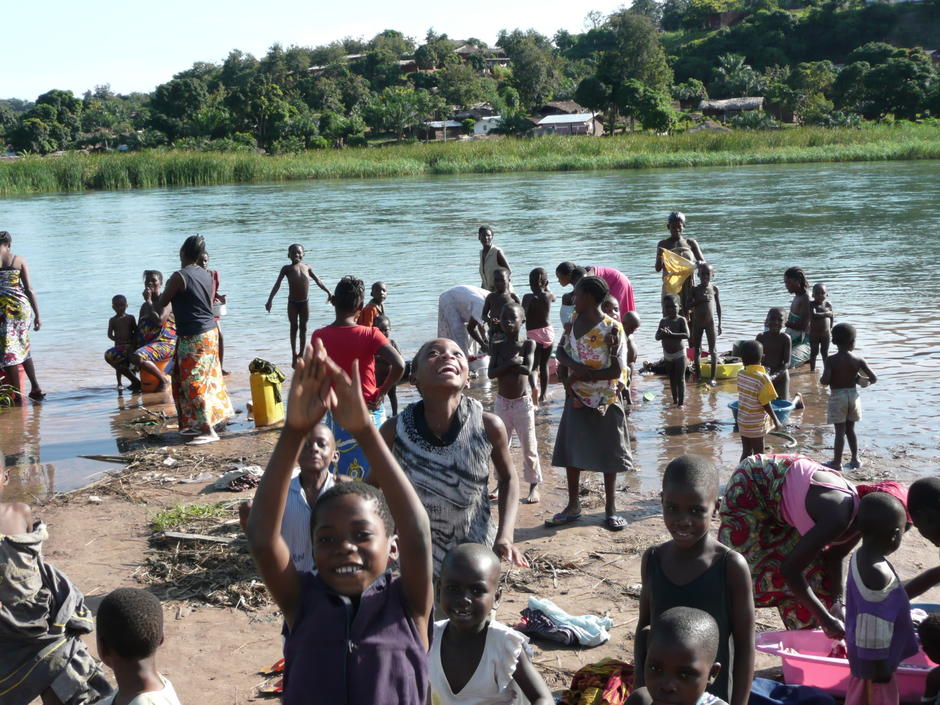
Development
Place:Uvira, Kalémie, DRC
Date:
2007 to 2014
Type of intervention:
Water
Technical analysis
Study
Main partners:
For the study:
London School of Hygiene and Tropical Medicine (LSHTM)
For the project:
The Congolese Ministry of Public Health
OXFAM
REGIDESO
A study of the impact of access to water on the incidence of cholera
Ever since the start of its involvement in the fight against cholera in the Democratic Republic of Congo (DRC), the Veolia Foundation has very much based its initiative on taking into account epidemiological studies. These have helped identify the primary sources of cholera and prioritize geographically the actions to be taken to contain the illness. The originality of this lies above all in the geographic nature of the approach that is both global (at the country level) and local (at the level of towns and neighborhoods).
In Uvira, the Foundation wanted to go even further and commissioned the London School of Hygiene and Tropical Medicine (LSHTM) to carry out an impact study of the project in order to supply scientific proofs of the appropriateness of the approach that had been adopted. Its aim: to show that improving access to drinking water, by reducing the use by the inhabitants of contaminated resources and encouraging hygienic practices in households, leads to a reduction in cases of cholera and diarrheic illnesses.
A joint mission was organized in 2012 with the Foundation and the LSHTM to establish what the sanitary situation in the town was and to define a method of work for the impact study.
First work and the first results of the study
Geographic coverage and epidemiological surveillance
Ever since the first missions carried out in Uvira, the Foundation and its partners (notably Oxfam UK) have provided support for the representative body of the Ministry of Public Health in Uvira, namely the Central Bureau of the Zone (CBZ). This support has, since 2009, taken the form of improved epidemiological surveillance of cholera. To improve this surveillance work and the understanding of the epidemiological data, significant work was done subdividing the town into Basic Geographic Units (BGUs) and then grouping these into Health Areas (HAs), and thus establishing close coverage of the territory of the town and refining understanding of the geographic dynamics of the illness. Accordingly, since 2009, permanent recording of all cases of cholera, divided by UGB, has been in place.
The correlation between water and cholera proved
At the start of 2014, the epidemiologists at LSHTM carried out an analysis of the chronological series of admissions to the Uvira Cholera Treatment Center (CTC) and the production of drinking water. Over the 2009-2013 period, this analysis was able to demonstrate the tangible reality of the link between access to drinking water and cholera, and therefore the appropriateness of the project.
The choice of a randomized method by clusters
The assessment of the impact of the project will be done using a trial methodology that is randomized by clusters (RCT – Randomized Controlled Trial). The town of Uvira will be divided into 16 clusters, each composed of a certain number of BGUs. The work to improve the drinking water supply system, and so access to water, will be done cluster by cluster. These will have the most homogenous characteristics possible in terms of population and have been defined in such a way that the work can be carried out in each one separately over roughly a similar period of time.
The order in which the work will be carried out will be left to chance (the trial is randomized): lots will be drawn for each of the 16 clusters and the outcome of this will define the order in which the work is done.
As the work progresses, the clusters that have benefited from improved access to water will enable us to assess the impact of this improvement on the incidence of cholera compared to the control clusters that will not yet have benefited from the work.
This study is of great importance in the field of fighting cholera to the extent that up to now no impact study on the link between an improvement in the infrastructures for drinking water in urban milieus and the epidemiology of cholera in Africa has existed in the scientific literature. So, the results of this study could prove to be a very powerful tool for arguing for structural actions in the area of water in order to fight cholera.
Place:
Congo, The Democratic Republic of the
Sponsor:
Bruno de Buzonnière, Veolia
Franck Haaser, Veolia Eau
Grant(s):
Cholera eradication program: €26,300 Board of Administration 2007/07/03
€390,000 Board of Administration 2010/03/15
London School Study +: €100,000 Board of Administration 2013/02/18
€250,000 Board of Administration 2014/06/23
More information on the Foundation's website.
For the study:
London School of Hygiene and Tropical Medicine (LSHTM)
For the project:
The Congolese Ministry of Public Health
OXFAM
REGIDESO

